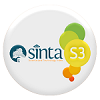Revolusi Korea : Dari Pemerintahan Militer Ke Demokrasi (1980-1987)
Abstract
Keywords
Full Text:
PDFReferences
Barney, R., Brennan, T., & Brittain, C. (Eds.). (2012). Plato and the Divided Self. Cambridge University Press. https://doi.org/10.1017/CBO9780511977831
Budiarjo, M. (2008). Dasar-dasar Ilmu Politik. Gramedia Pustaka Media.
Constitutional Democracy. (n.d.). Center for Civic Education. Retrieved May 4, 2024, from https://www.civiced.org/lesson-plans/constitutional-democracy
Croissant, A., Bruns, G., & John, M. (Eds.). (2002). Electoral politics in Southeast & East Asia. Friedich Ebert Stifung.
Cunningham, F. (2002). Theories of Democracy: A Critical Introduction, London and New York. Routledge & Taylor and Francis Group.
Dal Jin, Y. (2013). Hallyu 2.0: The New Korean Wave in the Creative Industry. International Institute Journal, 2(1).
Demografi Korea Selatan. (n.d.). In Ensiklopedia Dunia. Universitas STEKOM. Retrieved May 4, 2024, from https://p2k.stekom.ac.id/ensiklopedia/Demografi_Korea_Selatan
Do, J. H. (2012). Park to put policy priority on culture. Https://Www.Koreatimes.Co.Kr/Www/News/Nation/2013/03/608_127389.Html.
Ekonomi Korea Selatan, Keajaiban Sungai Han di Mata Dunia. (n.d.). Korean Culture Center. Retrieved May 4, 2024, from https://id.korean-culture.org/id/152/korea/69
Febriyanti, S. (2021, September 22). Menilik Perjuangan Demokrasi di Korea Selatan Melalui Film 1987: When The Day Comes. LPM Opini Online. https://lpmopini.online/menilik-perjuangan-demokrasi-di-korea-selatan-melalui-film-1987-when-the-day-comes/
Garaghan, G. J. (1946). A Guide to Historical Method. Fordham University Press.
Gottschalk, L. (1975). Mengerti Sejarah. Terj. Nugroho Notosusanto. Yayasan Penerbit Universitas Indonesia.
Greenburg, Z. O. (2016, July 6). Bigbang Theory: How K-Pop’s Top Act Earned $44 Million In A Year. Https://Www.Forbes.Com/Sites/Zackomalleygreenburg/2016/07/06/Bigbang-Theory-How-k-Pops-Top-Act-Earned-44-Million-in-a-Year/?Sh=64ad4c905830.
Irfan, M. F. R. (2017). Kisah Taksi Kuning dan Pembantaian Mahasiswa Gwangju 1980. Https://Tirto.Id/CxNZ.
Jwa, S.-H. (2002). The Evolution of Large Corporations in Korea: a new institutional economics perspective of the Chaebol. In The Evolution of Large Corporations in Korea. Edward Elgar Publishing.
Kartodirdjo, S., & Pusposaputro, S. (1992). Pendekatan Ilmu Sosial dalam Metodologi Sejarah. Gramedia.
Katsiaficas, G. (2012). Asia’s Unknown Uprisings Volume 1: South Korean Social Movements in the 20th Century. PM Press.
Kedubes Korea untuk Indonesia. (2005). Agama. Https://Overseas.Mofa.Go.Kr/Id-Id/Wpge/M_2764/Contents.Do#:~:Text.
Kuntowijoyo. (2003). Metodologi Sejarah (Edisi Kedua). Tiara Wacana Yogya.
Lavenia, A. (2022). Melihat Perjalanan Bigbang Melihat Perjalanan KPop . Https://Www.Cxomedia.Id/Art-and-Culture/20220210115906-24-173668/Melihat-Perjalanan-Bigbang-Melihat-Perjalanan-k-Pop.
Lee, S., & Nornes, A. M. (2015). Hallyu 2.0: The Korean Wave in the age of social media. University of Michigan Press.
Lubis, N. H. (2008). Metode Sejarah. Satya Historika.
Maulidya, M. N., & Hidayat, M. A. (2023). Studi Netnografi Deteritorialisasi Budaya Hallyu di Kalangan Penggemar Drama Korea. Jurnal Ilmiah Ilmu Sosial, 9(2), 146–159.
Merriam-Webster. (n.d.). democracy. In Merriam-Webster dictionary. Retrieved May 4, 2024, from https://www.merriam-webster.com/dictionary/democracy#word-history
Nilsson-Wright, J. (2022). Contested politics in South Korea: Democratic evolution, national identity and political partisanship. Chatham House, The Royal Institute of International Affairs.
Paquet, D. (2010). New Korean Cinema: Breaking The Waves. Columbia University Press.
Purnamasari, D. D. (2022). Tragedi Mei Antara Korsel dan Indonesia. . Https://Www.Kompas.Id/Baca/Polhuk/2022/05/27/Tragedi-Mei-Antara-Korsel-Dan-Indonesia.
Reditya, T. H. (2022). Mengenal Seo Taiji and Boys, Boyband Pertama yang Membesarkan Kpop. Https://Www.Kompas.Com/Global/Read/2021/06/26/192159070/Mengenal-Seo-Taiji-and-Boys-Boyband-Pertama-Yang-Membesarkan-Kpop.
Revolution. (n.d.). National Geographic. Retrieved May 4, 2024, from https://education.nationalgeographic.org/resource/revolution
Rhyu, S. (2005). The origins of Korean Chaebols and their roots in the Korean war. The Korean Journal of International Studies, 3(1), 203–230.
Russell, M. J. (2009). Pop Goes Korea: Behind the Revolution in Movies, Music, and Internet Culture. https://api.semanticscholar.org/CorpusID:190785231
Suhandi, S. (2012). Sekularisasi Di Indonesia Dan Implikasinya Terhadap Konsep Kenegaraan. Al-Adyan: Jurnal Studi Lintas Agama, 7(2), 71–90.
Supriyoko, K. I. (2010). Link And Match’ Dalam Konsep SDM. Https://Garuda.Kemdikbud.Go.Id/Documents/Detail/1246641. .
DOI: https://doi.org/10.17509/historia.v7i1.69495
Refbacks
- There are currently no refbacks.
Copyright (c) 2024 Historia: Jurnal Pendidik dan Peneliti Sejarah
INDEXED
TOOLS

This work is licensed under a Creative Commons Attribution-ShareAlike 4.0 International License.
Alamat Redaksi: Gedung Numan Soemantri, FPIPS UPI, Departemen Pendidikan Sejarah, Lantai 2, Jl. Dr. Setiabudhi No 229 Bandung, 40154






